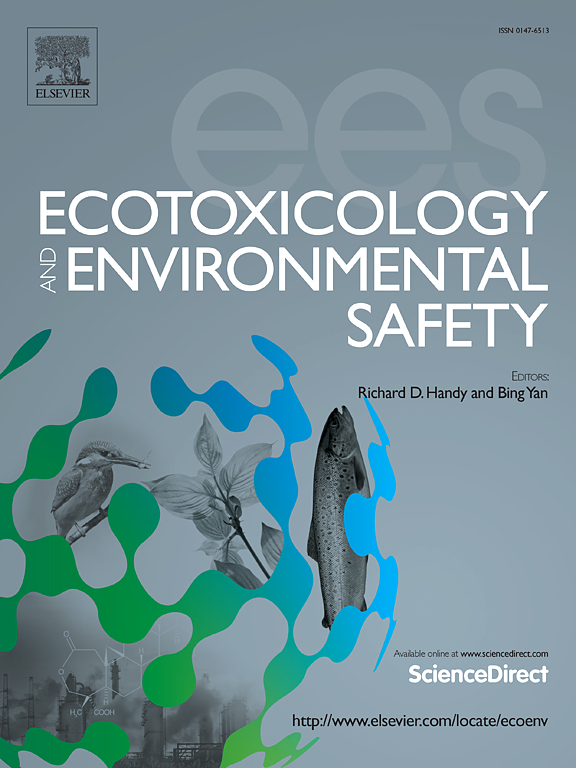小球藻的运输抑制:对抗高铵胁迫的强大防御。
IF 6.2
2区 环境科学与生态学
Q1 ENVIRONMENTAL SCIENCES
引用次数: 0
摘要
铵(NH₄⁺)是许多物种的主要氮源,然而富含 NH₄⁺的废水对环境造成了极大的威胁。小球藻(Chlorella sorokiniana)被广泛认为可用于废水处理。开发耐高 NH₄⁺的菌株有可能显著提高废水处理效率并降低处理成本。本研究发现了一种名为 hact(高铵浓度耐受性)的 C. sorokiniana 菌株。该菌株对 NH₄⁺(1000 mg/L)具有显著的耐受性。生理学、代谢组学和转录组学的综合分析表明,转运抑制是 C. sorokiniana 抵抗高浓度 NH₄⁺ 胁迫的主要机制。值得注意的是,在NH₄⁺升高的条件下,hct菌株保持了强大的细胞内稳态。相比之下,野生型(WT)菌株的代谢活性、活性氧(ROS)和有害代谢物(如胺类)均受到抑制。这项研究丰富了我们对微藻分子对高浓度 NH₄⁺胁迫反应的认识,为开发处理富含 NH₄⁺废水的微藻生物修复系统的工程优化策略铺平了道路。本文章由计算机程序翻译,如有差异,请以英文原文为准。
Chlorella’s transport inhibition: A powerful defense against high ammonium stress
Ammonium (NH₄⁺) is a primary nitrogen source for many species, yet NH₄⁺-rich wastewater presents a substantial risk to environment. Chlorella sorokiniana is widely recognized for wastewater treatment. The development of high NH₄⁺ tolerant strains has the potential to significantly enhance wastewater treatment efficiency and reduce treatment costs. This study reports the identification of a C. sorokiniana strain designated hact (high ammonium concentration tolerance). This strain demonstrates a remarkable tolerance to NH₄⁺ (1000 mg/L). Integrative analyses of physiology, metabolomics, and transcriptomics demonstrated that transport inhibition is the principal resistance mechanism against high NH₄⁺ stress in C. sorokiniana. Notably, under elevated NH₄⁺ conditions, the hact strain maintained robust intracellular homeostasis. In contrast, the wild-type (WT) strain exhibited suppressed metabolic activity, reactive oxygen species (ROS), and an excess of detrimental metabolites such as amines. This research enriches our understanding of microalgal molecular responses to high NH₄⁺ stress, paving the way for the development of engineered optimization strategies for microalgal bioremediation systems treating NH₄⁺-rich wastewater.
求助全文
通过发布文献求助,成功后即可免费获取论文全文。
去求助
来源期刊
CiteScore
12.10
自引率
5.90%
发文量
1234
审稿时长
88 days
期刊介绍:
Ecotoxicology and Environmental Safety is a multi-disciplinary journal that focuses on understanding the exposure and effects of environmental contamination on organisms including human health. The scope of the journal covers three main themes. The topics within these themes, indicated below, include (but are not limited to) the following: Ecotoxicology、Environmental Chemistry、Environmental Safety etc.

 求助内容:
求助内容: 应助结果提醒方式:
应助结果提醒方式:


